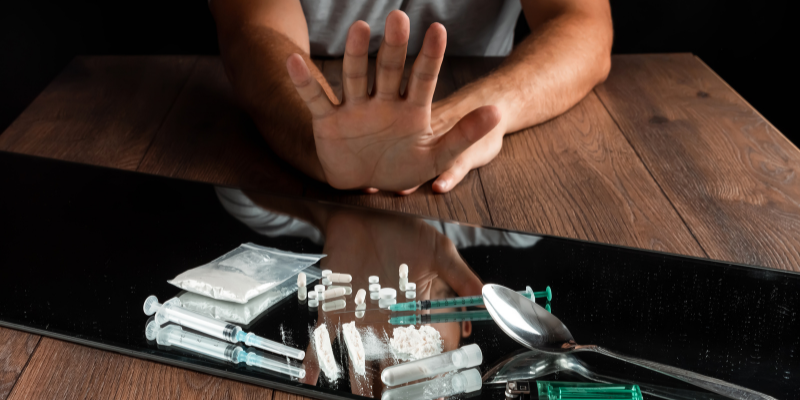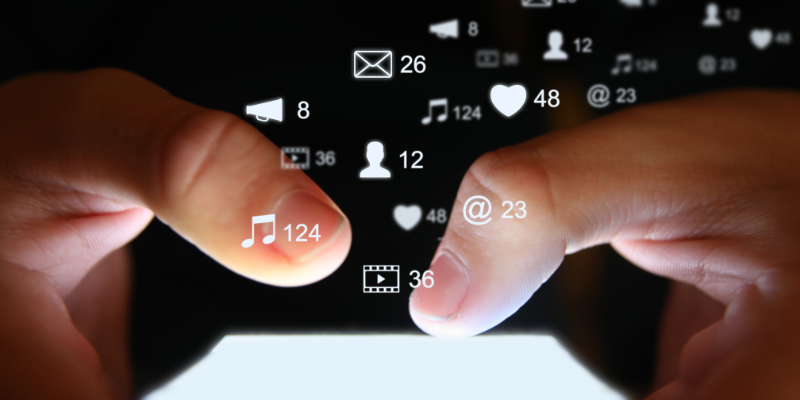
Eat, drink, and be merry! It’s the tagline for the holiday season that runs from Thanksgiving to New Year’s. And Americans are living up to that saying. A 2018 study shows that on average, Americans double their booze intake during the holiday season. And approximately 69% of people say this is the season when they’re most inclined to overindulge in alcohol.
New Year’s Eve takes the top spot when it comes to binge drinking—that means consuming 5 or more drinks for men or 4 or more drinks for women in a 2-hour window—with 47% of men and 40% of women admitting they overdo it on the final night of the year. Over 27% of men and nearly 17% of women say they have blacked out on New Year’s Eve. Drinking until you blackout can be a sign of an alcohol use disorder.
Warning Signs of Alcoholism
Recognizing if your drinking is a serious problem isn’t easy. For many people, addiction creeps up slowly, and the changes are hard to notice. To help you determine if your drinking is out of control, take the following quiz. This questionnaire is called the CAGE assessment and it has been used in the addiction field for decades.
1. Have you ever felt you should Cut down on your drinking?
2. Have people Annoyed you by criticizing your drinking?
3. Have you ever felt bad or Guilty about your drinking?
4. Have you ever had a drink first thing in the morning as an Eye-Opener to steady your nerves or get rid of a hangover?
If you answer yes to 2 or more of these questions, then you may have a problem, and it’s a good idea to seek help.
One additional question you should ask yourself is:
5. Do you continue to drink despite significant negative consequences with your health, relationships, finances, or with the law?
If your answer is yes, then it is time to take a hard look at your drinking habit. Functional brain imaging with SPECT can be a very powerful tool to help break denial about addictions and can be helpful in many other ways.
Tips to Help You Avoid Overindulging
For people struggling with a substance use disorder, all the drinking that comes with the holidays can be a real problem and can act as a gateway to relapse. If you want to avoid drinking altogether or limit your alcohol intake during the holidays, here are some simple strategies to follow.
If you’re hosting a party: Serve a selection of non-alcoholic mocktails. Be sure they aren’t full of sugary juices or syrups. Sugar acts like a drug in the brain and ramps up cravings.
If you’re a guest: Consider bringing a stash of herbal teas or festive cider as a host/hostess gift. This way, you will be assured there will be non-alcoholic options available.
Practice saying no: Get into the habit of declining alcohol when it’s offered to you. The more often you say no to drinks when you socialize, the easier it will become. If you find it difficult to turn down a drink in social situations, ask a friend to back you up. If you both agree not to indulge, you will be accountable to each other, which increases the likelihood you will stick to your plan.
Remember, alcohol isn’t the main attraction: Adopt a mindset that holiday parties aren’t about drinking, they’re about spending time with people you like. Focus your attention on the people you enjoy.
Eat first: If you’re going to drink, wait until you’ve had some healthy food before having a cocktail or glass of bubbly. Drinking on an empty stomach lowers activity in the prefrontal cortex, which impairs judgment and makes you more likely to say yes to that second, third, or fourth drink. When you’ve eaten some lean protein and healthy carbs—think veggies and sweet potatoes—it delays the absorption of alcohol into the bloodstream, balances your blood sugar for better decision-making, and reduces cravings.
At Amen Clinics, we use brain SPECT imaging as part of a comprehensive evaluation to help our patients see the effects alcohol has had on their brains. This is often a powerful first step to breaking the chains of addiction. We use an integrated brain-body approach to healing the brain that includes biological, psychological, social, and spiritual areas of your life.
If you want to join the tens of thousands of people who have already enhanced their brain health and overcome their symptoms at Amen Clinics, speak to a specialist today at 888-288-9834. If all our specialists are busy helping others, you can also schedule a time to talk.





Good morning!
I’m interesting an appointment for my son with ADD.
I would like to now the cost of the appointment.
Thanks you
Comment by Johan Martin — December 28, 2019 @ 12:45 AM
Hello Johan, thank you for reaching out. We look forward to speaking with you!
Comment by Amen Clinics — December 30, 2019 @ 7:56 AM